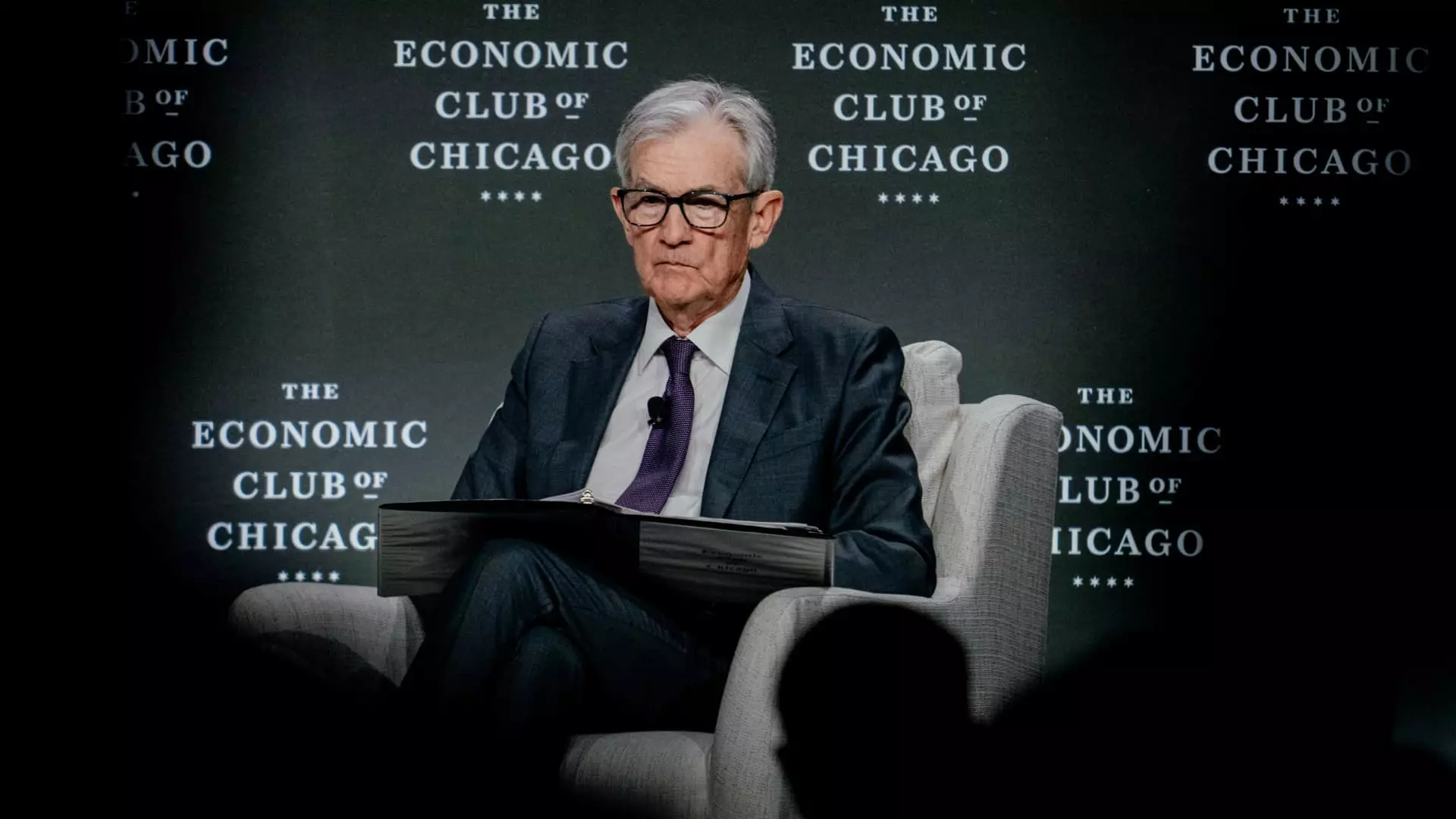In a dramatic escalation of his ongoing feud with the Federal Reserve, Donald Trump has unleashed a torrent of criticism towards Chairman Jerome Powell. Referring to him as a “major loser,” Trump contends that the central bank must immediately lower interest rates to stave off a potentially disastrous slowdown in the U.S. economy. This rhetorical assault is not merely bluster; it reflects a scarier reality of how Trump’s administration may prioritize political gains over sound economic principles. The U.S. economy, after all, is not a game show where one can simply demand instant results—it is a complex organism that responds to myriad factors, not just wishful thinking and social media rants.
Interestingly, Trump’s arguments hinge on an assertion he made on Truth Social: that inflation is nonexistent, and many prices, including energy, are on a downward spiral. This oversimplification dismisses the broader economic context. Inflation, while currently mild, can shift rapidly and unpredictably, especially when rattled by political posturing. By painting a rosy picture and advocating for “preemptive cuts” in interest rates, Trump not only undermines the credibility of the Federal Reserve but risks creating a false sense of security in the markets.
The Delicate Balance of Monetary Policy
Federal Reserve independence is a keystone of American economic stability. Powell himself has made it clear that any attempt to remove him from his position could have catastrophic implications for the financial markets. An environment of uncertainty breeds volatility, and Trump’s public campaign against Powell only adds bricks to an already precarious wall. The results have been immediate. Following Trump’s remarks, the stock market plummeted, eroding billions of dollars in value. This stock market turmoil is symptomatic of a larger problem—the growing disconnect between political rhetoric and sound monetary policy.
Attempting to appoint or remove a Federal Reserve chairman based on how the political winds blow undermines decades of economic wisdom. The Fed must act independently to achieve its dual mandate of maximum employment and stable prices. Trump’s characterization of Powell as “Mr. Too Late” is not just a personal attack; it reflects a misunderstanding of the intricacies of monetary policy. These decisions should not be influenced by the fleeting nature of political ambition. Instead, they must be guided by data, economic indicators, and the long-term health of the economy.
Market Reactions: The Canary in the Coal Mine
The apprehension sparked by Trump’s comments about Powell has reverberated through global markets, causing investors to retreat to safer assets such as gold. When markets react strongly to political statements, it is a warning signal indicating that investor confidence is fragile at best. The Dow’s near-2% drop is not merely a statistic; it represents a collective anxiety regarding the unpredictability of Washington’s handle on economic policy. A weakened dollar, which fell to its lowest level since 2022, further illustrates how political turmoil can lead to destabilization in broader economic fundamentals.
Krishna Guha, a vice president at Evercore ISI, articulates the stakes involved in these tensions. If Trump’s agenda threatens the independence of the Fed, the ramifications would be dire. Higher yields and lower equities are not just theoretical concepts; they translate into real-world consequences that affect ordinary Americans—from job security to mortgage rates. The current economic climate is marked by uncertainty, and undermining the central bank’s independence only exacerbates this volatility.
A Trade War with Costs
The situation worsens when considering Trump’s trade policies, which Powell has warned will constrain growth and potentially fuel inflation. As tariffs take hold, the economic repercussions become more evident. While Trump dismisses the potential consequences, claiming the “goods” are trending downward, the reality is that tariffs create a stifling atmosphere that could negate any short-term gains from interest rate cuts. The trade war isn’t just a political strategy; it is an economic gamble that impacts businesses and consumers alike.
In a vicious cycle, the administration’s tariff policies and the Fed’s cautious approach form two sides of a coin that threatens the foundations of the American economy. Fighting inflation with economic isolationism is not an answer; it is a recipe for further complications. This dangerous game must be recognized and addressed head-on, lest we fall victim to the whims of erratic political machinations masquerading as economic strategy.



Leave a Reply